Flourishing in the First Five Years
Connecting Implications from Mind, Brain, and Education Research to the
Development of Young Children
Donna Wilson and Marcus Conyers
ROWMAN & LITTLEFIELD EDUCATION
A division of
ROWMAN & LITTLEFIELD
Lanham Boulder New York Toronto Plymouth, UK
Published by Rowman & Littlefield Education
A division of Rowman & Littlefield
4501 Forbes Boulevard, Suite 200, Lanham, Maryland 20706
www.rowman.com
10 Thornbury Road, Plymouth PL6 7PP, United Kingdom
Copyright 2013 by Donna Wilson and Marcus Conyers
All rights reserved. No part of this book may be reproduced in any form or by any electronic or mechanical means, including information storage and retrieval systems, without written permission from the publisher, except by a reviewer who may quote passages in a review.
British Library Cataloguing in Publication Information Available
Library of Congress Cataloging-in-Publication Data
Wilson, Donna (Donna Lee)
Flourishing in the first five years : connecting implications from mind, brain, and education research to the development of young children / Donna Wilson and Marcus Conyers.
pages cm
Includes bibliographical references and index.
ISBN 978-1-4758-0317-4 (cloth : alk. paper)ISBN 978-1-4758-0318-1 (pbk. : alk. paper)ISBN 978-1-4758-0319-8 (electronic : alk. paper)
1. Learning, Psychology of. 2. LearningPhysiological aspects. 3. Brain. I. Conyers, Marcus. II. Title.
LB1060.W5527 2013
370.15'23dc23
2013026991
 TM The paper used in this publication meets the minimum requirements of American National Standard for Information Sciences Permanence of Paper for Printed Library Materials, ANSI/NISO Z39.48-1992.
TM The paper used in this publication meets the minimum requirements of American National Standard for Information Sciences Permanence of Paper for Printed Library Materials, ANSI/NISO Z39.48-1992.
Printed in the United States of America
Preface
As busy as young children always seem to be, their minds are even busier. Every experience they have is a learning experience, forging and reinforcing connections among brain cells and laying the foundation for their formal education. This text for early childhood educators, caregivers, and parents of infants, toddlers, and preschoolers introduces relevant findings from mind, brain, and education research and examines the practical implications of those findings for the lives of young children.
Our vision for this book, as promised in its title, is to help every child flourish in his or her early years and be ready to thrive on the first day of schooland every day thereafter.
Toward that end, we explore
how and why early childhood educators, caregivers, and parents can become caring coaches to help young children develop self-control, critical thinking, and problem-solving abilities;
how learning changes the brain and what that means for every child to be able to achieve his or her unique potential;
how to encourage young children to become the boss of their brains by developing self-control and learning age-appropriate critical-thinking skills;
what discoveries about learning through imitation and mirror neurons mean for early childhood educators, parents, and other caring adults in childrens lives;
how to optimize the AEIOU learning cycle that recurs daily at home and in the early childhood center;
what neuroscientists have learned about the developing brains of infants and young children;
why modeling and reinforcing an optimistic outlook may improve learning outcomes;
how to support the development of early literacy, problem-solving, and creative abilities;
what roles healthy nutrition and regular physical activity play in supporting learning; and
how to identify and address risks to healthy development.
Content Overview
The concepts referenced above are organized into seven chapters that, taken collectively, give early childhood educators, parents, and other caregivers important insights into children during their first five years of development.
Chapter 1 introduces important concepts from the emerging field of educational neuroscience about how young children learn: that the brain changes in response to new experiences, that infants learn naturally through imitation, and that outdated notions about fixed intelligence need to be set aside in favor of an understanding that we all have the capacity to become functionally smarter.
Chapter 2 rounds out this research review with a memorable by-the-numbers tour of discoveries about the brain, mind, and child development in recent decadesfor example, about how the mind and brain learn, how senses function as the gateway to learning, how we can shape our emotional responses, how children exhibit many forms of intelligence, and how extensive human brain capacity really is.
Chapter 3 explores how the brain and body work together to support cognitive development, underscoring the importance of healthy nutrition, regular physical activity, and adequate sleep. We also discuss how movement and music can help young children attend to learning tasks and enhance their memory of what they have learned.
The power of positivity in support of learning is the topic of Chapter 4. Here we explore the growing body of research about how children who believe that they can achieve what they aim to do are more likely to do so and how educators and parents can model and help instill an optimistic outlook in young children.
Chapter 5 explores recent research about language and early literacy development. It celebrates the power of simple conversations with young children, of playing with language, and of reading, reading, and more reading.
A creative approach to guiding children to develop their problem-solving abilities and learn self-control is presented in Chapter 6. By beginning to learn how to regulate their behaviors and thinking, young children are on the path to becoming the boss of their brains.
Chapter 7 examines risk factors to healthy child development, from prenatal exposure to alcohol and tobacco to the adverse impact of toxic stress, poverty, and child abuse and neglect. By providing this content, we hope to equip early childhood educators with valuable information for parent education and interactions with families and community leaders to encourage involvement in and support for childrens learningone more step toward our goal of helping all children thrive.
We wrap up the central points of the text in our conclusion, and the glossary is designed as a useful reference to key terms introduced throughout this book.
Practical Applications
Several special features are presented to highlight key content and apply the research discussed in these pages.
Learning How to Learn features examples of cognitive assets, or thinking skills, that you can teach and that young children can learn and incorporate into their play and interactions with others.
Learn With Us is a series of learning stories that accompany the discussion of cognitive assets. Featuring engaging animal characters, each story includes key terms to introduce to children before sharing the story and follow-up activities to give them the opportunity to practice these cognitive skills.
AEIOU in Action offers examples of a five-step learning cycle (tied to the letters a, e, i, o, and u) especially suited for early childhood education programs.
Engaging With Educators is a collection of short features in which early childhood educators who earned their graduate degree through the brain-based teaching program we codeveloped with Nova Southeastern University share their perspectives on the principles explored in the text as well as stories from their classrooms.

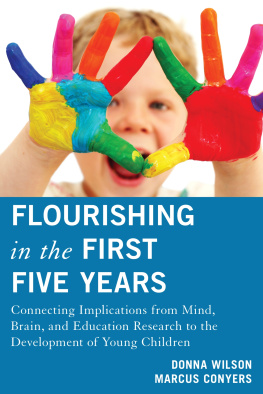
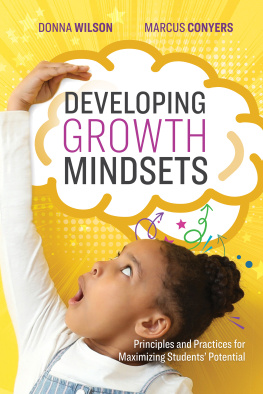
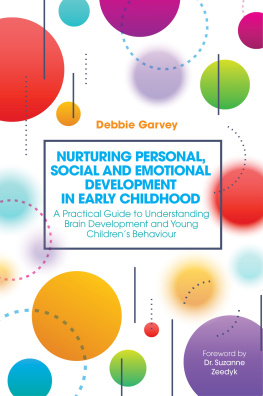
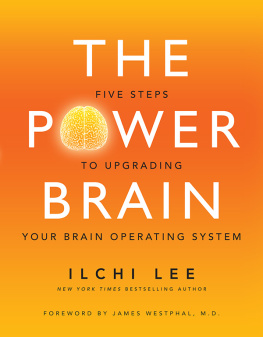
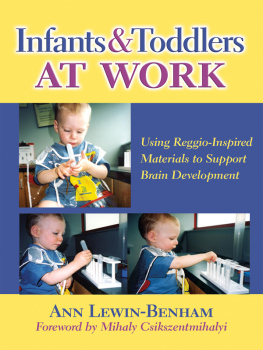
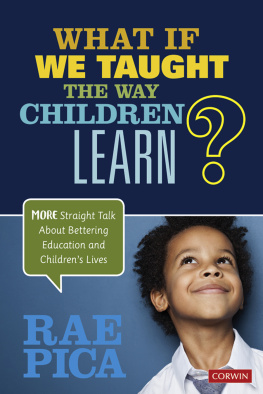

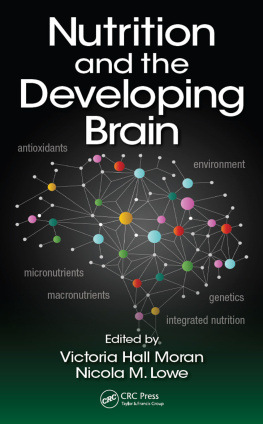
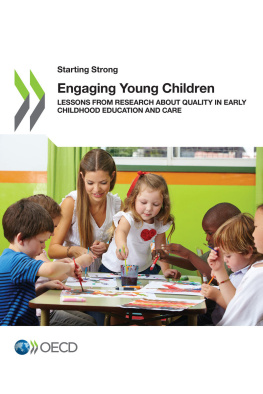
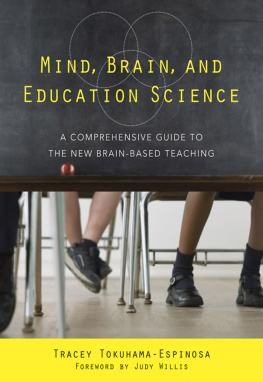
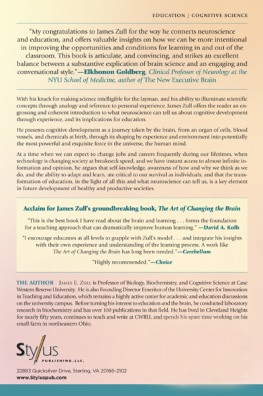
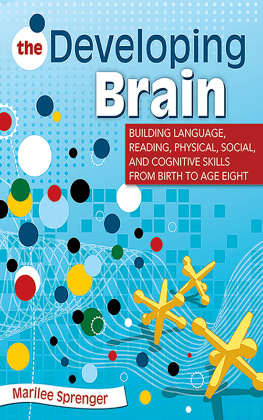
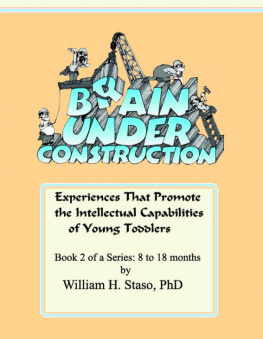
 TM The paper used in this publication meets the minimum requirements of American National Standard for Information Sciences Permanence of Paper for Printed Library Materials, ANSI/NISO Z39.48-1992.
TM The paper used in this publication meets the minimum requirements of American National Standard for Information Sciences Permanence of Paper for Printed Library Materials, ANSI/NISO Z39.48-1992.